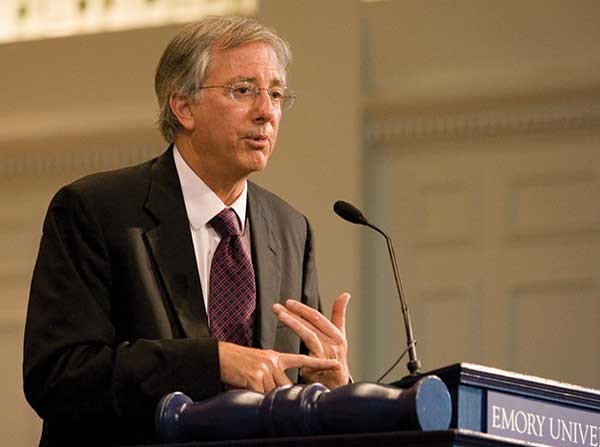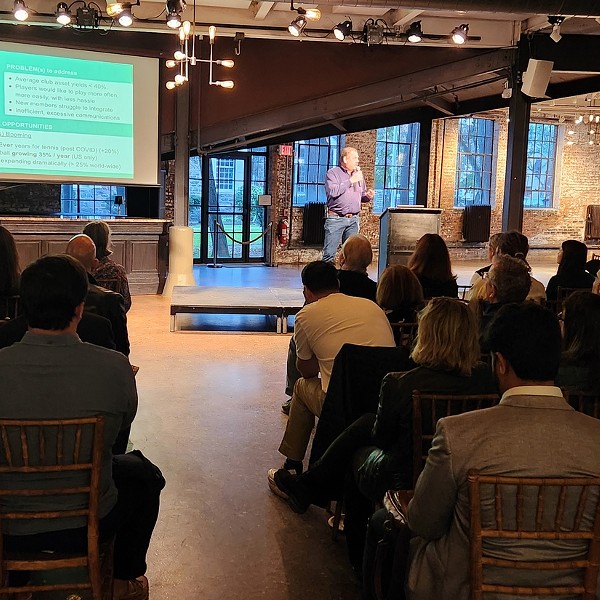The Arab Spring left a host of toppled dictators in its wake, uncertainty where replacement factions lag in delivering promised change, and unrest where autocrats still rule. In Syria, the Assad regime's assault on its Sunni population has produced 80,000 deaths, 60,000 missing, 200,000 imprisoned, and over 1 million fleeing refugees. Escalating violence in Iraq runs along Sunni-Shia lines yet moderate Shia are threatening to secede from the government in the face of elections postponements in Sunni-dominated areas. Beltway policy wonks wring their hands at the specter of Iranian domination enshrouded in a Shia Crescent—an arc of power stretching from Damascus through Baghdad to Tehran. The Israeli-Palestinian debacle remains the never-ending story. Mideast unrest remains linked to religious and sectarian divisions, and disagreement over Islamic governance octane levels, yet religion is the elephant in the room no one dares address.
On April 16 at 7:30pm at Lecture Center 100, the Distinguished Speaker Series at SUNY New Paltz will host scholar and diplomat Dennis Ross. Working under four administrations, Ross has over two decades of experience in Soviet and Middle East policy and played a leading role in shaping US involvement in the Middle East peace process, dealing directly with the parties in negotiations. Presently a counselor for the Washington Institute for Near East Policy, Ross will address Mideast issues and US involvement. A Q&A will follow, moderated by Ottaway Fellow and NPR Middle East correspondent Deborah Amos. Tickets are $18 for the general public. (845) 257-3880; Newpaltz.edu/speakerseries.
Lorna Tychostup: Iraq and Syria are the most unstable countries in the Middle East, with growing-cross border instability and violence. Forcefully attempting to stem cross-border cooperation between Iraq-based groups (Sunni, al Qaeda) sympathetic to the Syrian rebels, Iraq's al-Maliki-led government has allowed munitions from Iran and Iraqi Shia militiamen to cross through Iraq into Syria to the Assad regime.
Dennis Ross: The Iranians have invested a tremendous amount in the Assad regime and clearly demonstrate how high the stakes are by the weapons and Hezbollah [fighters] they send. They're determined and going to great lengths to keep Assad in power. Radical Shiite groups are also coming out of Iraq into Syria. I don't know about connections to the Maliki government but it is very strongly connected to the Iranians. Maliky fears the spillover into Iraq and worries what will happen if Assad should go. You have radical Sunni jihadis from al Qaeda in Iraq or elsewhere. Las Vegas rules don't apply to Syria—what takes place in Syria is not going to stay there but radiate outward. The human catastrophe within Syria is also a threat to the region.
LT: Some fear the Lebanese civil war might erupt again. There is the never-ending Israel/Palestinian situation and Iranian infiltration into Iraq and the region, amid fears of a Shia Crescent.
DR: The notion of a Shia Crescent is a little hard to elevate at a time when you have is a struggle within Syria that is consuming it between Sunnis and the regime and Shia supporters of the Alawite-based regime. It's hard to say there is a Shia Crescent when you have a major conflict within Syria radiating outward. The Iranians may fear that they are going to lose their base in Syria. In Lebanon there has been backlash against Hezbollah support for what's going on in Syria. Almost two-thirds of the Syrian population is Sunni and they make up the vast majority of the opposition. The Syrian regime is killing its citizens and there is a reaction against that. I don't see a Shia Crescent right now.
LT: Your op-ed in the New York Times on achieving peace in the Mideast stated, "the moment Islamists come to define Palestinian identity is the moment when this conflict will be transformed from a national into a religious one" and may no longer be possible to resolve. Through all of the skirmishes in the region you see the Sunni-Shia boundary. Iran and the Assad Alawite regime are Shia. The rebels Assad is targeting are Sunni—.
DR: Alawites are an offshoot of Shia. The Iranians may be trying to forestall the end of the Assad regime but they are not going to succeed. Sooner or later it will collapse. The question is, how much of a catastrophe is it going to produce? The most immediate problem King Abdullah is facing is 400,000 Syrian refugees [entering] Jordan. They are not Shia. At the current pace there will be 700,000 by June. That's not sustainable. I see something different as the main source of greater instability in the area around Syria right now.
LT: Your SUNY New Paltz talk is titled "Challenges in the Middle East 2013 and Beyond." Harvard professor Stephen Walt, who co-authored The Israel Lobby and US Foreign Policy, says that "the pro-Israel lobbies are among the most capable for enacting political change and influencing public opinion in the US." Mention of anything less than total alignment of US-Israeli interests and solid support for Israel in the media sets off an aggressive campaign by these powerful lobbies. Walt claims the result has been "a backlash against the most extreme neoconservative parts of the pro-Israel lobby and their tendency to smear people they disagree with baseless charges." Have the pro-Israel lobbies saturated the American public and done more harm than good regarding a resolution?
DR: Stephen Walt has never been in a policy-making position. From the way he writes about the situation, I don't think he understands. In all the administrations I've been a part of, I have yet to see a president make a decision on the national security issues that I was involved with on what one lobby or another wanted. Decisions were based on what was the right thing to do. I don't accept the premise that the lobbyists are somehow distorting the policy. I don't think the lobbies are the reason that the perceptions of the Israelis and the Palestinians are what they are. There is a reality in the US that creates a greater sense of commonality with the Israelis than with others. If you look at the polling, you'll see the favorability ratings toward the Israelis are at 79 percent. You don't have other countries in the region seen the same way.
















